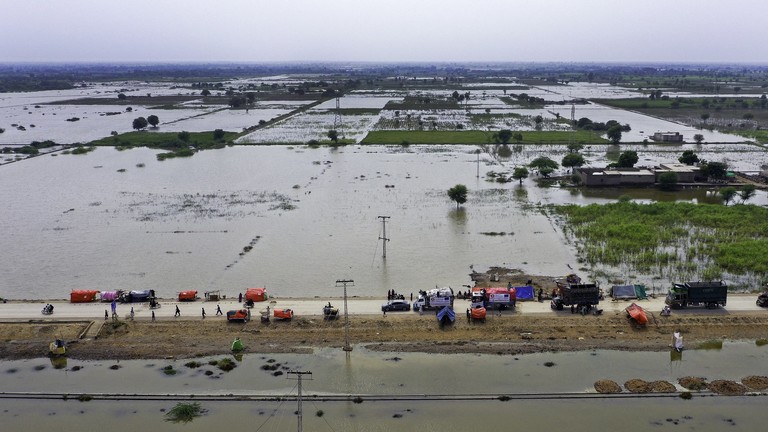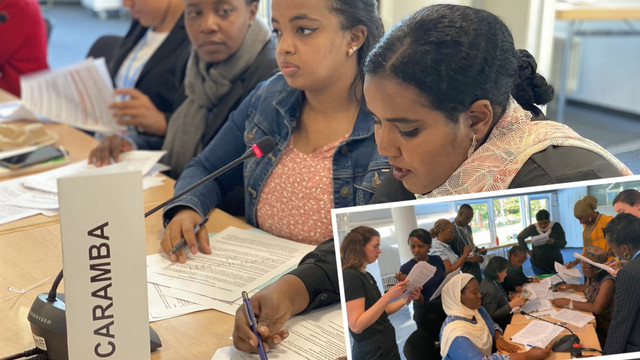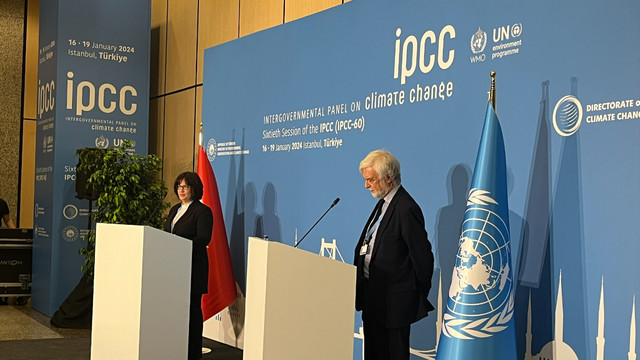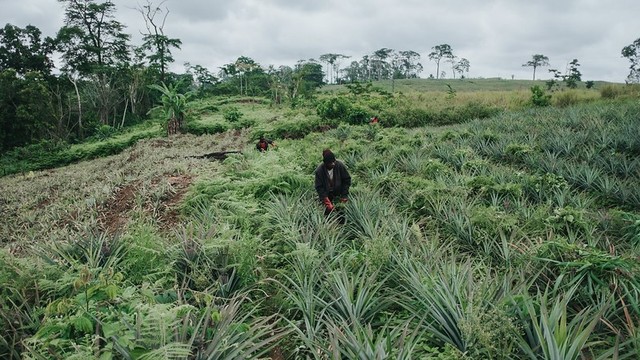Looking ahead at 2024: what's in store for climate and nature?
The first IIED Debates of 2024, on 30 January, reflected on the major outcomes from COP28 and explored the key moments to look out for in 2024.

Floods devastated Pakistan in the summer of 2022, leaving about one-third submerged under floodwater (Photo: European Union, 2022 by Abdul Majeed, via Flickr, CC BY 2.0)
2023 was another catastrophic year with intense floods, droughts, soaring heat, wildfires and freezing temperatures bringing devastation to lives and livelihoods globally. Humanity sits at a climate ‘crossroads’ and with the window to secure a liveable future rapidly closing, the stakes have never been higher.
This event online explored what the 2023 climate negotiations delivered, how the outcomes respond to the priorities of the Least Developed Countries (LDC) Group, and to take a forward look at where we go from here and what to watch out for in 2024.
As the ever-intensifying impacts of climate change and the loss of nature continue to impact poor and vulnerable communities first and worst, there is no escaping the issue of climate justice.
Ahead of the 28th Conference of the Parties (COP28) to the United Nations Framework Convention on Climate Change (UNFCCC), the Dakar Declaration on Climate Change 2023 by the Ministers of the Least Developed Countries set out clear priorities. Hot on the agenda was the first Global Stocktake assessment, a long overdue commitment to a loss and damage fund, the climate finance framework, food sustainability and critical progress on adaptation and mitigation.
But did COP28 deliver? And where do we go from here?
Following the Dubai conference, this online event brought together leading voices from the LDC Group, together with IIED and the Intergovernmental Panel on Climate Change (IPCC), to reflect on the outcomes of COP28.
Speakers shared their perspectives on the proceedings, discussed areas of momentum, exposed where negotiations fell short and debated what needs to happen next to implement emergent commitments.
About the speakers
- Tom Mitchell is the executive director of IIED
- Madeleine Diouf Sarr is the head of the climate change division in Senegal’s Ministry of Environment, Sustainable Development and Ecological Transition (MEDD) and was the chair of the LDC Group until December 2023
- Yamikani J.D. Idriss is the climate change negotiator for Malawi and the LDC and transparency coordinator for the LDC Group
- Jim Skea is the current chair of the IPCC for its seventh assessment cycle
- Nicola Sorsby is a researcher in IIED's Natural Resources and Climate Change research groups
Event coverage
You can watch a recording of the event below or on IIED's YouTube channel, where individual links to the start of each speaker's contribution are also provided.
About IIED Debates
This event was part of the IIED Debates series. Through the convening of expert speakers and external stakeholders, IIED brings together an international community to discuss critical issues.
IIED Debates encompass both physical and digital events, including critical themes, breakfast debriefs and webinars. These events are public and are hosted regularly throughout the year online and when possible in our London and Edinburgh offices.
IIED events newsletter
Sign up to our mailing list for updates and invitations to events throughout the year, including webinars, critical themes and debriefs.
Contact
Juliette Tunstall (juliette.tunstall@iied.org), internal engagement and external events officer at IIED



